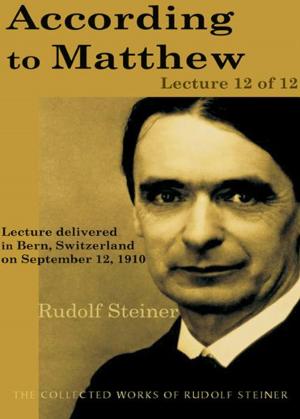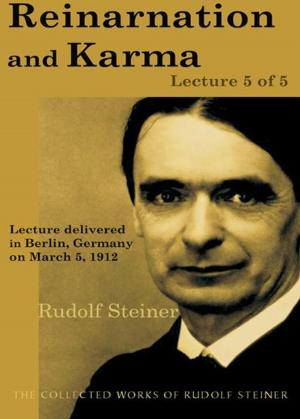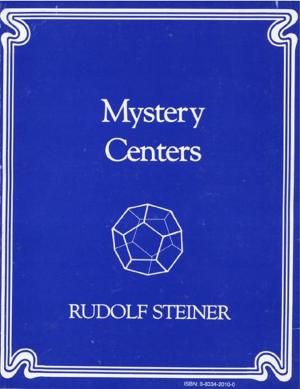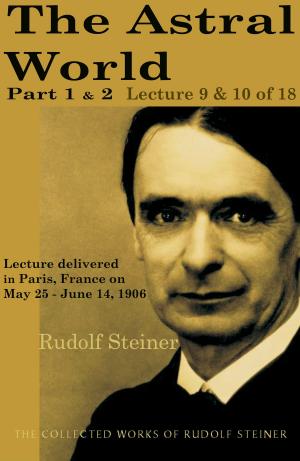Goethe and Mathematics: Works 10 of 16
Nonfiction, Reference & Language, Education & Teaching, Educational Theory, Philosophy & Social Aspects| Author: | Rudolf Steiner | ISBN: | 9780880108881 |
| Publisher: | SteinerBooks | Publication: | March 1, 2010 |
| Imprint: | SteinerBooks, Collected Works 1 | Language: | English |
| Author: | Rudolf Steiner |
| ISBN: | 9780880108881 |
| Publisher: | SteinerBooks |
| Publication: | March 1, 2010 |
| Imprint: | SteinerBooks, Collected Works 1 |
| Language: | English |
This lecture is part of the collection "Nature's Open Secret" by Rudolf Steiner. Steiner (1861-1925) was an Austrian philosopher, social reformer, architect, and esotericist. He gained initial recognition as a literary critic and cultural philosopher. At the beginning of the 20th century, he founded a spiritual movement, Anthroposophy. He is considered the father of Waldorf education, biodynamic agriculture, anthroposophical medicine and spiritual science. At the young age of twenty-one, Rudolf Steiner was chosen to edit Goethes scientific writings for the principle Geothe edition of his time. Goethes literary genius was universally acknowledged; it was Steiners task to understand and comment on Goethes scientific achievements. Steiner recognized the significance of Goethes work with nature and his epistemology, and here began Steiners own training in epistemology and spiritual science. Steiners introductions to Goethes works re-visions the meaning of knowledge and how we attain it. Goethe had discovered how thinking could be applied to organic nature and that this experience requires not just rational concepts but a whole new way of perceiving. In an age when science and technology have been linked to great catastrophes, many are looking for new ways to interact with nature. With a fundamental declaration of the interpenetration of our consciousness and the world around us, Steiner shows how Goethes approach points the way to a more compassionate and intimate involvement with nature. The entire Collected Works of Rudolf Steiner are available from SteinerBooks.
This lecture is part of the collection "Nature's Open Secret" by Rudolf Steiner. Steiner (1861-1925) was an Austrian philosopher, social reformer, architect, and esotericist. He gained initial recognition as a literary critic and cultural philosopher. At the beginning of the 20th century, he founded a spiritual movement, Anthroposophy. He is considered the father of Waldorf education, biodynamic agriculture, anthroposophical medicine and spiritual science. At the young age of twenty-one, Rudolf Steiner was chosen to edit Goethes scientific writings for the principle Geothe edition of his time. Goethes literary genius was universally acknowledged; it was Steiners task to understand and comment on Goethes scientific achievements. Steiner recognized the significance of Goethes work with nature and his epistemology, and here began Steiners own training in epistemology and spiritual science. Steiners introductions to Goethes works re-visions the meaning of knowledge and how we attain it. Goethe had discovered how thinking could be applied to organic nature and that this experience requires not just rational concepts but a whole new way of perceiving. In an age when science and technology have been linked to great catastrophes, many are looking for new ways to interact with nature. With a fundamental declaration of the interpenetration of our consciousness and the world around us, Steiner shows how Goethes approach points the way to a more compassionate and intimate involvement with nature. The entire Collected Works of Rudolf Steiner are available from SteinerBooks.















